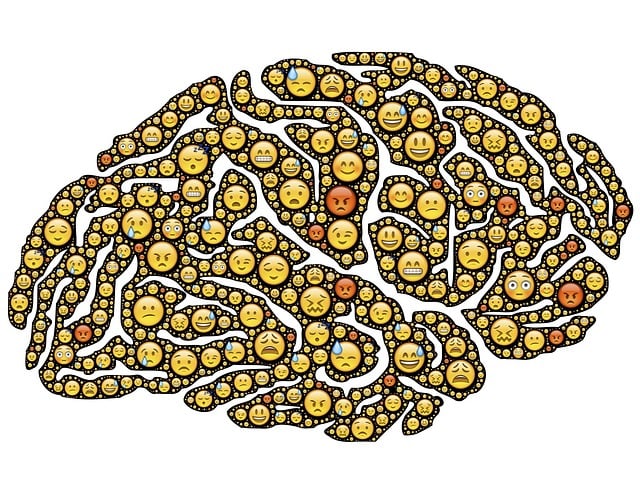Substance abuse and eating disorders in Colorado Springs are addressed through a multi-faceted approach combining mental health education, evidence-based therapies like CBT, mindfulness techniques, and public awareness campaigns. Early intervention is key, focusing on identifying risks and symptoms through accessible programs. Facilities like Colorado Springs Eating Disorders Therapy integrate CBT and holistic practices to build resilience, empower individuals with Mind Over Matter principles, and reduce stigma. This comprehensive strategy, tailored to individual needs and cultural contexts, aims to prevent addiction and eating disorders while fostering long-term recovery in a supportive environment.
In Colorado Springs, addressing substance abuse requires a multifaceted approach. This article explores comprehensive risk reduction strategies, focusing on understanding the intricate dangers of substance misuse, fostering supportive environments for recovery, implementing evidence-based therapies, and cultivating resilience. By delving into these key areas, we aim to provide insights that contribute to effective treatments, ultimately supporting individuals on their path to overcoming challenges related to substance abuse.
- Understanding Substance Abuse and Its Risks
- Creating a Supportive Environment for Recovery
- Evidence-Based Therapies and Interventions
- Building Resilience and Long-Term Sustainability
Understanding Substance Abuse and Its Risks

Substance abuse refers to the harmful use of drugs or alcohol, leading to dependence and a range of adverse effects on physical and mental health. It’s a complex issue deeply intertwined with underlying factors such as genetics, environment, and mental health conditions, like eating disorders—a growing concern in communities like Colorado Springs. Understanding these risks is the first step towards prevention and early intervention.
In Colorado Springs, where access to Mental Health Education Programs Design and Mental Wellness Podcast Series Production can be readily available, fostering a culture of mental wellness starts with recognizing the signs and symptoms of substance abuse. This includes educating individuals on the potential triggers, such as stress, peer pressure, or unaddressed trauma. By incorporating Mind Over Matter Principles, communities can empower individuals to make informed choices, build resilience, and seek help before addiction takes hold.
Creating a Supportive Environment for Recovery

Creating a supportive environment is paramount for individuals on the path to recovery from substance abuse. This involves fostering an atmosphere that encourages healing and deters relapse. In Colorado Springs Eating Disorders Therapy, for instance, therapists can cultivate a safe space where clients feel understood, validated, and empowered. Techniques like mindfulness meditation and mood management strategies can be integrated into daily routines, helping individuals develop healthy coping mechanisms and emotional resilience.
Public awareness campaigns play a crucial role in this as well, by promoting understanding and reducing stigma associated with substance abuse. By educating communities about the realities of addiction and available resources, these campaigns can create a more supportive environment outside of therapeutic settings. This collective effort contributes to a culture that not only accepts but actively supports individuals in their recovery journeys.
Evidence-Based Therapies and Interventions

Evidence-based therapies and interventions play a pivotal role in mitigating risks associated with substance abuse. These therapeutic approaches are grounded in scientific research, ensuring their effectiveness in treating various aspects of addiction. One such evidence-based method gaining traction is Cognitive Behavioral Therapy (CBT), which helps individuals identify and change maladaptive thought patterns and behaviors contributing to substance misuse. CBT encourages self-reflection and empowers patients to develop healthier coping strategies, fostering a more positive outlook on life without drugs or alcohol.
In the context of Colorado Springs Eating Disorders Therapy, CBT has proven successful in addressing co-occurring disorders like addiction. By integrating this therapy into treatment plans, professionals can effectively target dual diagnoses, offering comprehensive care tailored to each patient’s unique needs. Moreover, public awareness campaigns development and self-care practices are integral components that support these evidence-based interventions, as they educate communities and individuals about the risks of substance abuse while promoting proactive risk management planning for mental health professionals.
Building Resilience and Long-Term Sustainability

Building resilience is a cornerstone of effective risk reduction strategies for substance abuse. By fostering inner strength development through therapy and support groups, individuals can learn to navigate triggers and cravings more effectively. Colorado Springs eating disorders therapy, for instance, often incorporates techniques that enhance self-awareness, emotional regulation, and coping mechanisms, empowering clients to make healthier choices in the long term. This approach not only addresses immediate concerns but also equips individuals with the tools needed to maintain sobriety over time.
Cultural sensitivity in mental healthcare practice plays a significant role in fostering resilience. Recognizing and addressing the impact of cultural beliefs and socioeconomic factors can prevent relapse by ensuring that treatment plans are tailored to each individual’s unique context. In addition, Mental Illness Stigma Reduction Efforts contribute to creating supportive environments where people feel comfortable seeking help without fear of judgment. This holistic approach, combining inner strength development, cultural sensitivity, and stigma reduction, is vital for achieving long-term sustainability in substance abuse recovery.
Substance abuse is a complex issue, but with the right strategies, recovery is achievable. By fostering a supportive environment, implementing evidence-based therapies like those offered by Colorado Springs Eating Disorders Therapy, and building resilience, individuals can reduce risks and sustain long-term recovery. Each step, from understanding the problem to cultivating personal strength, plays a vital role in navigating this challenging journey towards a healthier, happier life.














